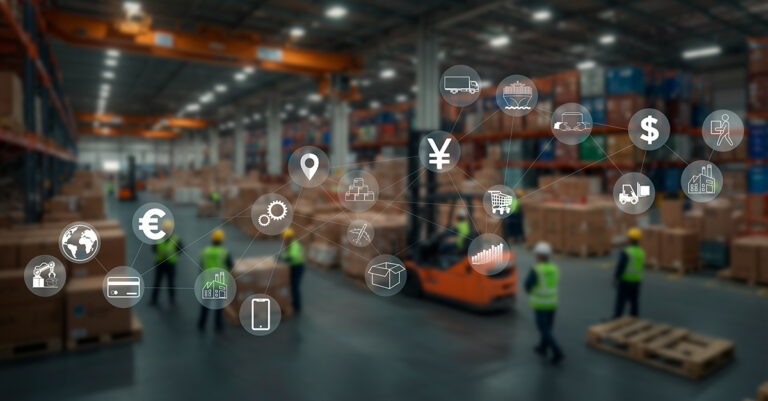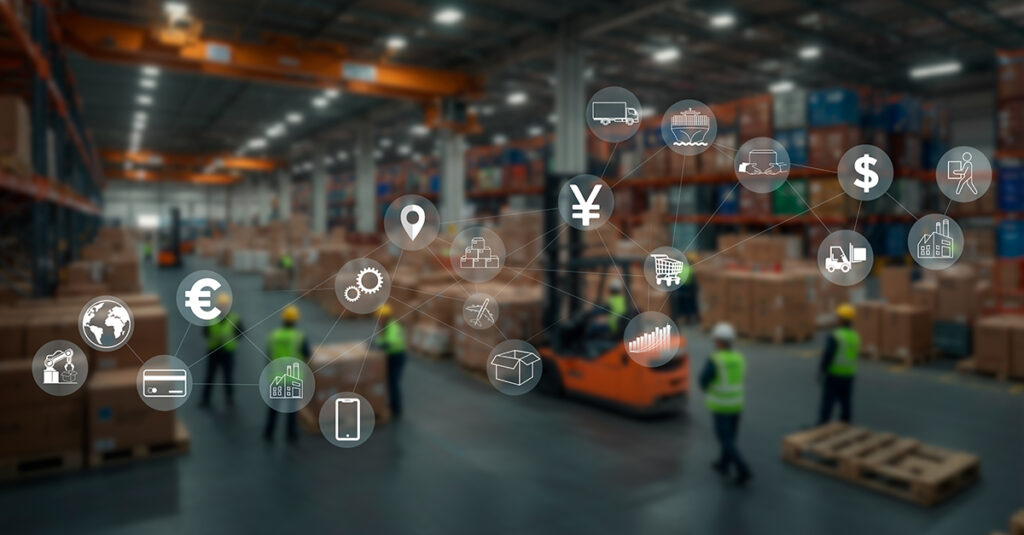Originally published in Manufacturer, ARB’s Manufacturing Industry newsletter.
Blockchain technology is increasingly transforming manufacturing supply chains. In a traditional supply chain, tracking the journey from raw materials to finished goods can be complex and error-prone, often involving multiple disconnected systems and manual recordkeeping. Blockchain introduces a decentralized, immutable ledger that allows all parties in the supply chain — from raw material suppliers to manufacturers to distributors — to access and verify shared data in real time.
Enhanced Tracking Capabilities
A key benefit of using blockchain in manufacturing is improved traceability. Every transaction or movement of goods can be recorded on the blockchain, providing a clear, unchangeable history of each product’s build cycle. This level of visibility can help manufacturers identify and address issues, such as defective components or counterfeit products. It also helps reduce waste and enhance product quality. Blockchain can benefit industries such as aerospace, pharmaceuticals and food production, where strict safety and documentation standards are critical.
In addition, blockchain enhances trust and collaboration among supply chain partners. The data is tamper-resistant and verified by consensus, which reduces the risk of fraud and disputes. Smart contracts — self-executing agreements stored on the blockchain — can automate and enforce terms between parties, speeding up processes like payments, order fulfillment and quality assurance checks.
Defining Blockchain
Simply put, blockchain is a distributed, shared database (or ledger). It’s highly secure because it’s continuously copied and synchronized among thousands of computers (called nodes) maintained by third parties.
The lack of centralized storage and control — combined with a rigorous third-party verification process — make the ledger extremely resistant to mistakes, tampering or fraud. Transactions can’t be added to the ledger until they’re verified through established consensus protocols. This means that someone who wants to falsify information has to tamper with all copies simultaneously.
Combined with bar codes, sensors or digital tags affixed to physical items, manufacturers can use blockchain to document and track each step in the supply chain in real time. This provides added protection against fraud and counterfeiting by accurately and transparently tracking materials and products as they move from one party to the next throughout the process. It also allows manufacturers to identify and respond to supply chain risks and disruptions in real time.
Is Blockchain Technology Right for You?
As manufacturing companies continue to digitize and streamline their operations, blockchain is becoming a valuable tool for building more resilient, efficient and trustworthy supply chains. Contact your financial advisors to help evaluate the costs and benefits of investing in blockchain technology at your manufacturing company.
This publication is distributed with the understanding that the author, publisher and distributor are not rendering legal, accounting or other professional advice or opinions on specific facts or matters, and, accordingly, assume no liability whatsoever in connection with its use. ©2025

Manufacturing Team Spotlight
Nick Lagoditz, CPA, joined ARB in 2016 as an associate and became a tax manager in 2022. He provides tax preparation and business advisory services, with a focus on partnerships, real estate professionals, and construction businesses. Previous to ARB, Nick worked at a large international firm for nearly two years.






